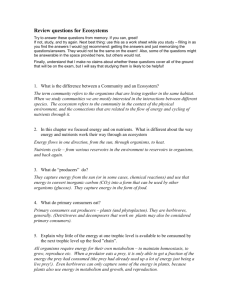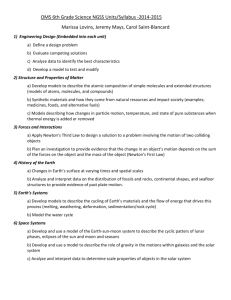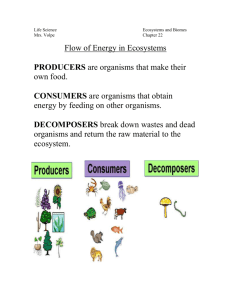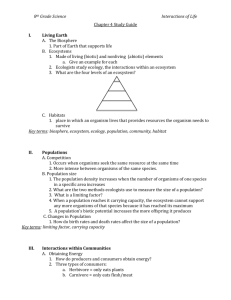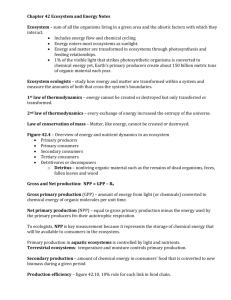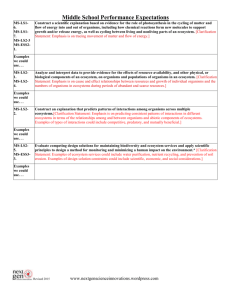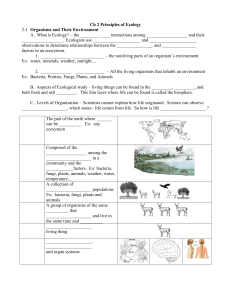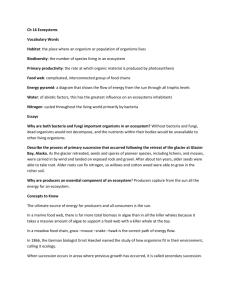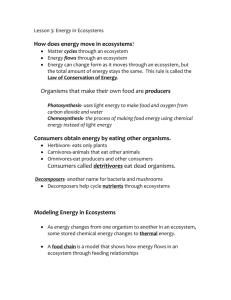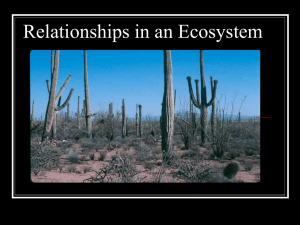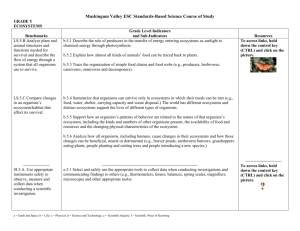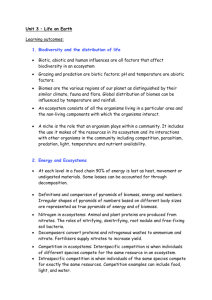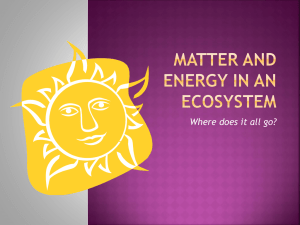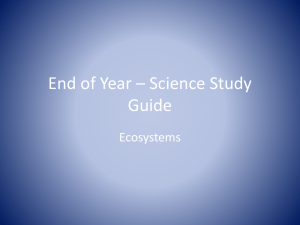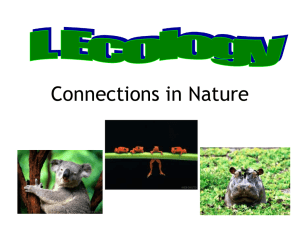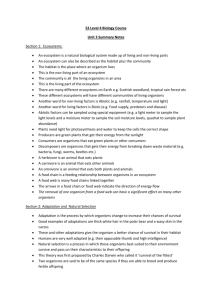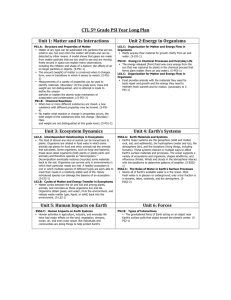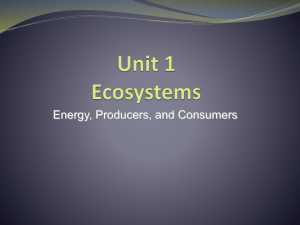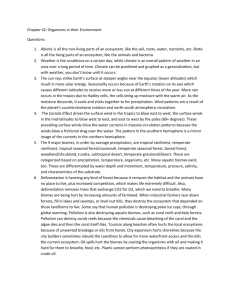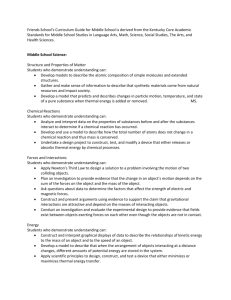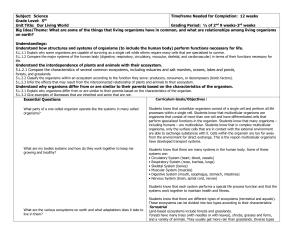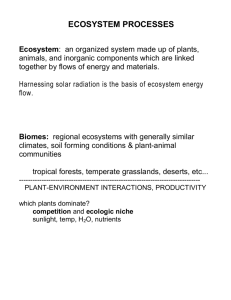Eleven Basic Ecological Concepts
advertisement
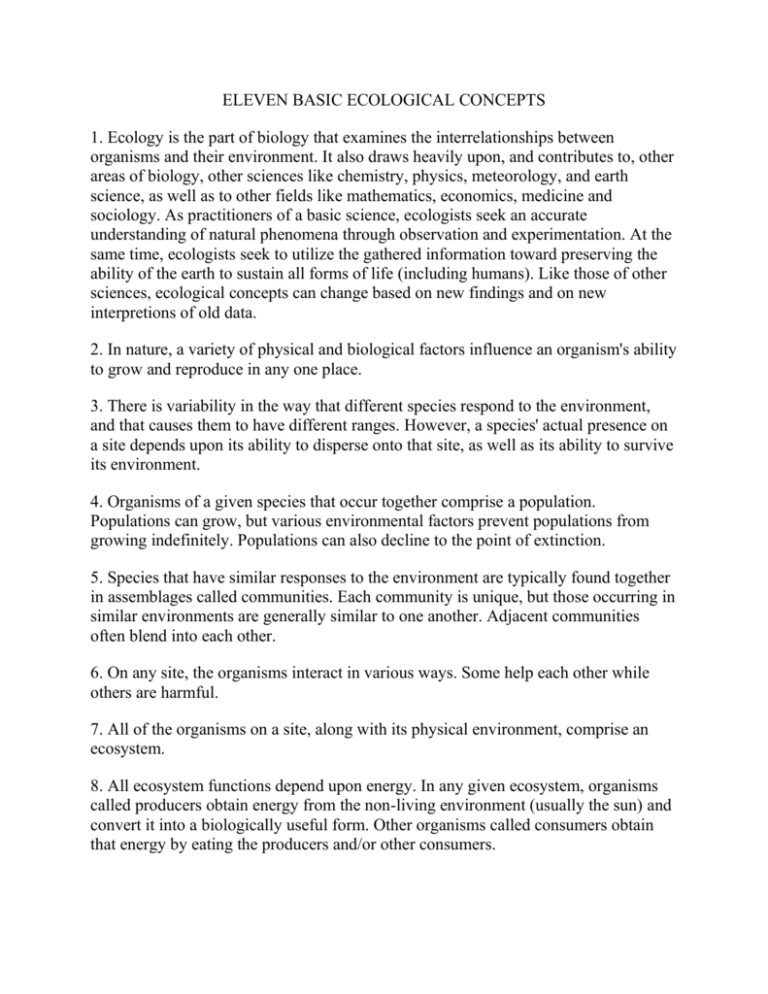
ELEVEN BASIC ECOLOGICAL CONCEPTS 1. Ecology is the part of biology that examines the interrelationships between organisms and their environment. It also draws heavily upon, and contributes to, other areas of biology, other sciences like chemistry, physics, meteorology, and earth science, as well as to other fields like mathematics, economics, medicine and sociology. As practitioners of a basic science, ecologists seek an accurate understanding of natural phenomena through observation and experimentation. At the same time, ecologists seek to utilize the gathered information toward preserving the ability of the earth to sustain all forms of life (including humans). Like those of other sciences, ecological concepts can change based on new findings and on new interpretions of old data. 2. In nature, a variety of physical and biological factors influence an organism's ability to grow and reproduce in any one place. 3. There is variability in the way that different species respond to the environment, and that causes them to have different ranges. However, a species' actual presence on a site depends upon its ability to disperse onto that site, as well as its ability to survive its environment. 4. Organisms of a given species that occur together comprise a population. Populations can grow, but various environmental factors prevent populations from growing indefinitely. Populations can also decline to the point of extinction. 5. Species that have similar responses to the environment are typically found together in assemblages called communities. Each community is unique, but those occurring in similar environments are generally similar to one another. Adjacent communities often blend into each other. 6. On any site, the organisms interact in various ways. Some help each other while others are harmful. 7. All of the organisms on a site, along with its physical environment, comprise an ecosystem. 8. All ecosystem functions depend upon energy. In any given ecosystem, organisms called producers obtain energy from the non-living environment (usually the sun) and convert it into a biologically useful form. Other organisms called consumers obtain that energy by eating the producers and/or other consumers. 9. The bodies of all organisms are built from chemical elements called nutrients. In any ecosystem, producers obtain various nutrients in the form of gasses and minerals from the air, soil, and/or water and convert them into biologically useful forms. Consumers obtain these nutrients by eating producers and/or other consumers. Decomposers convert the nutrients back into their non-biological form. 10. Ecosystems are constantly changing, either rapidly or slowly. Those changes can be due to changes in physical factors, to the arrival or local extinction of the component species, to the organisms progressing through their life cycles, to altered relationships between the species, and to the species changing by evolution. 11. More than any other species, humans have changed the earth's ecosystems. At present, ecologists are particularly concerned about preservation of biological diversity, the effects of global climate change, and the ability of ecosystems to sustain life. This page posted and maintained by Kenneth M. Klemow, Ph.D., Biology Department, Wilkes University, WilkesBarre, PA 18766. (570) 408-4758, kklemow@wilkes.edu.
